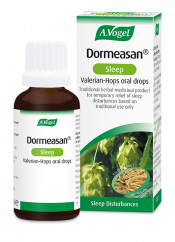How did you sleep last night?
If that’s a question you dread, let me first confess – I sleep extremely well most nights. Often when I think I’ve woken in the wee small hours, it is actually early morning, and my alarm clock’s due to go off in about 20 minutes.
You probably hate me by now. But what can I say? I realise I am quite unusual, as well as very lucky.
A lot of my friends are far less lucky, though – and poor sleep is a subject we chew over endlessly when I’m with them.
And when I ask them about their bedtime routines, I’m not surprised they have trouble dropping off at night.
They’re trying to relax by watching TV in bed, or they go straight from desk to duvet – their poor brains still buzzing with work or facebook.
It’s no good trying to tell them that these things are causing or exacerbating their sleep problem – because, for them, filling their heads with late night TV or online chatter is far easier than letting in the stressful or anxious thoughts that take over when their minds are left to wander.
So although we read a lot about good ‘sleep hygiene’ – creating the right environment for sleep by lowering the lights, having a relaxing bath, using sleep inducing oils (eg lavender, lemon balm, bergamot or sweet marjoram), and sticking to the same bedtime every night – these tips are only useful if you’ve already tackled any chronic stress in your life.
And – surprisingly – you may not even know that you’re stressed.
While it’s obvious to anyone whose short periods of sleeplessness always coincide with a busy or challenging time in their life, when stress is a long term it may not be quite so obvious. Long term, the turbulent feelings stress causes can become so familiar they’re almost comfortable. And, allowed to go on too long, sleeplessness can also seem familiar and normal to you.
But it is not normal to sleep badly. And taking longer than half an hour to get to sleep, or waking in the night and not being able to drop off again, are signs of a problem with insomnia if they happen three nights a week or more.
If this sounds like you, it could be a sign that you need some extra help – so ask your GP to refer you to a cognitive behavioural therapist who can help you unravel your worries.
Herbal remedies such as valerian can also help to calm a stressed mind – and the correct dose will work just as well as an over the counter sleeping pill, but without any side effects. Usually the only barrier to herbals working is psychological – because a lot of people (wrongly) expect them to fail, and then they do!
You could also try these great sleep tips I was given by Dr Jason Ellis, director of the Sleep Research Centre at Northumbria University:
- Try counting backwards in 7s from 2000 – it’s so hard you won’t have any space in your head to worry about sleep, and may even fall asleep
- After a couple of weeks you’ll be retuned to this, and it may no longer work. Instead try focusing in minute detail on a strawberry in your mind. Once you have perfected it – colour, smell, tiny pips, shiny skin etc, try to turn it blue. This is another way of emptying your head of worries about not sleeping
- If you’re still awake after 15 minutes get up and do something – ideally leave the room, and only return when you’re sleepy.








